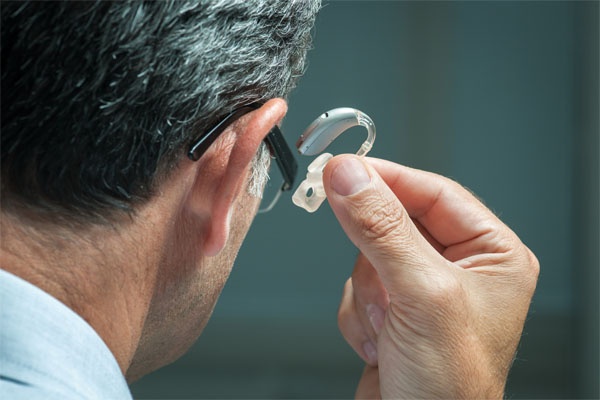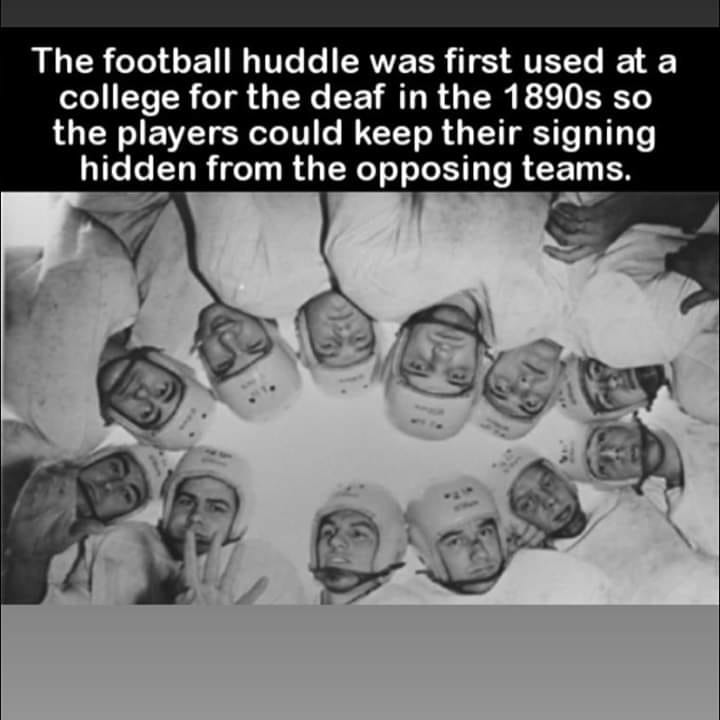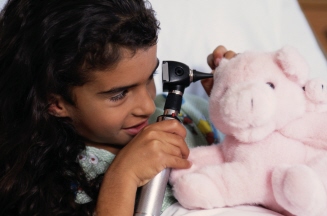Are My Hearing Aids Programmed Correctly?
Tags: Speech, Hearing Aid, Audiology, Hearing Aids, Communication, Hearing, Hard of Hearing
"Selective Hearing" - or Hearing Loss?
Very often, spouses and life-partners will suggest that their loved one has “selective” hearing – a self-made term indicating that they can hear perfectly fine most of the time, but tend not to hear their partner speaking. Is it simply a matter of “tuning out” – or could it be something else?
Tags: Hearing Aid, Hearing Aids, Communication, Hearing, Hearing Loss Prevention, Support, Hard of Hearing, Hearing Loss
Deaf History Month - Facts and Resources
National Deaf History Month is celebrated from March 15 – April 15. It recognizes contributions of deaf and hard of hearing (HoH) people, as well as highlighting the various forms of communication chosen by deaf and HoH individuals – including American Sign Language (ASL). For example – did you know that the football huddle we use today was first started at a college for the deaf in the 1890s so the players could keep their ASL signing hidden from the opposing team?
Tags: Communication, Deaf, Hard of Hearing, Interpreting, ASL Interpreter
7 Tips When Buying Hearing Aids for Children
If your child has been diagnosed with a permanent hearing loss it’s likely that hearing aids have been recommended. Hearing aids can be life-altering for your child, allowing him/her to hear sounds often miss due to hearing loss. Hearing aids that are properly fitted early on can allow your child to develop speech and language skills to reach his/her full potential.
Tags: Hearing Aid, Hearing, Hard of Hearing, Hearing Loss, toddler
10 Tips for Working with an Interpreter
If you’ve never worked with a Sign Language interpreter before, you may not be aware of how to prepare for and conduct yourself during this interaction. Don’t worry – below are several guidelines that will help make a positive experience for you, the interpreter, and most importantly, the Deaf or Hard of Hearing (HoH) individual.
Tags: Communication, Support, Deaf, Hard of Hearing, American Sign Language, Interpreting, ASL Interpreter, ASL
Access to Services is Crucial for Deaf and Hard of Hearing
The loss of the ability to communicate can mean a loss of quality of life, especially for those who are Deaf and Hard of Hearing (HoH). The Americans with Disabilities Act (ADA) protects the civil rights of all Americans, regardless of ability, by requiring businesses and organizations to offer reasonable accommodations that allow for effective communication. For Deaf/HoH people, this could mean anything from captioning, texting, video relay services, or sign language interpreting services, dependent on the individual. The vision of Cleveland Hearing & Speech Center (CHSC) is a community where everyone communicates effectively.
Tags: Communication, Support, Deaf, Hard of Hearing, American Sign Language, Interpreting, ASL Interpreter, ASL
How Hearing Loss Affects Speech-Language Development
Children learn to talk by listening to those around them. The first few years of life are a critical time for speech and language development. Children must be able to hear speech clearly in order to learn language. Fluctuating hearing loss due to repeated ear infections might mean the child doesn't hear consistently and may be missing out on critical speech information. Permanent hearing loss will also affect speech and language development, especially if it is not detected early. The earlier hearing loss is identified and treated, the more likely the child will develop speech and language skills on par with children who aren’t experiencing hearing issues.
Tags: Speech, Hearing Aid, Hearing Aids, Communication, Hearing, Deaf, Hard of Hearing, Hearing Loss, Learning, Voice, toddler, talking
Why I Chose to Learn American Sign Language
Caring. Compassionate. Funny. Loves God. Can’t wait until Fall when Starbucks comes out with their signature Pumpkin Spice Latte with coconut milk. This person I’m describing is my sister, and she is deaf. She endured a terrible sickness at the age of 1 that took away her hearing, but not her spirit. My family and I wanted to know her – her thoughts, her needs, her dreams and goals. We needed to be able to communicate effectively with her. In order to achieve this, my parents decided that we would all learn American Sign Language (ASL). Many people assume learning a new language to communicate with a deaf person will be difficult – if not impossible. However, it is very possible to learn American Sign Language. Regardless of your age, if you are willing to learn, you will discover that your loved one holds all kinds of amazing ideas and plans for adventure. You and your loved one will thrive! Here are some tips to make learning American Sign Language more successful:
Tags: Language, Communication, Support, Deaf, Hard of Hearing, American Sign Language, ASL, Learning
12 Tips for Communicating with a Deaf Person
- Use a normal speaking pattern. Over-enunciating makes it hard for a Deaf person to read your lips.
- Write it down if necessary. Some people are better at reading lips than others
- Look directly at the person you are communicating with. If you look away, a Deaf person may miss what you are saying.
- Speak in a normal tone of voice. Since a Deaf person cannot hear you, raising your voice doesn’t help.
- Try to find your own way to communicate. Although you can’t talk to one another, there are many other ways for you to communicate. You can use a pen and paper or even text to have a conversation.
- Don’t be afraid to ask a Deaf person to repeat themselves. The goal is clear communication and understanding. Asking to repeat something has better results and less frustration – for both parties.
- Be patient and inclusive. Imagine you are trying to understand a conversation that you want to be involved in, but are unable due to the conversation’s speed, number of people talking at the same time, and/or not being able to share your ideas with the group. By allowing enough time and considering the communication needs of everyone in the group, you ensure that everyone can participate fully.
- In a group conversation, take turns speaking. A Deaf person can only look at one individual at a time.
- Be clear and concise. Saying “I’m fine” can have many different meanings with subtle differences. For example “I’m fine” can mean
- I feel well
- I feel the same way I always feel
- I’m way too busy to know how I feel
- Don’t bother me
- Did you want to know about my emotional or physical well-being?
- You don’t care how I feel or would have stopped walking to listen
- Use body language and gestures. Deaf and hard of hearing people who use sign language are accustomed to using their hands and face to communicate. Gesturing and using clear facial expressions when speaking to a person with hearing challenges can help them understand what you’re saying. “Miming” is also acceptable if it helps to get a certain point across, but remember that mime is not the same as sign language.
- Accept that awkward moments happen. Even if you follow all of the above tips while speaking to a Deaf or hard of hearing person, they’ll probably still misunderstand you at some point. Don’t feel bad or stop. Just repeat yourself and continue the conversation. If they’re having trouble understanding a certain word or phrase, try using a different word, rephrasing what you said, or typing it on your phone.
- Resist the urge to give up when misunderstandings happen. A little effort on your part can make a big difference to someone, and chances are that you’ll benefit from the experience, too.
Tags: Language, Communication, Deaf, Hard of Hearing, American Sign Language, ASL
10 Reasons to Visit the Community Center for the Deaf and Hard of Hearing
There are countless reasons why the Community Center for the Deaf and Hard of Hearing (CCDHH) is a wonderful resource for Deaf individuals as well as those who want to learn more about Deaf culture.
Tags: Language, Communication, Teens, Support, Deaf, Hard of Hearing, Hearing Loss, American Sign Language, Interpreting, ASL Interpreter, ASL, Learning

















